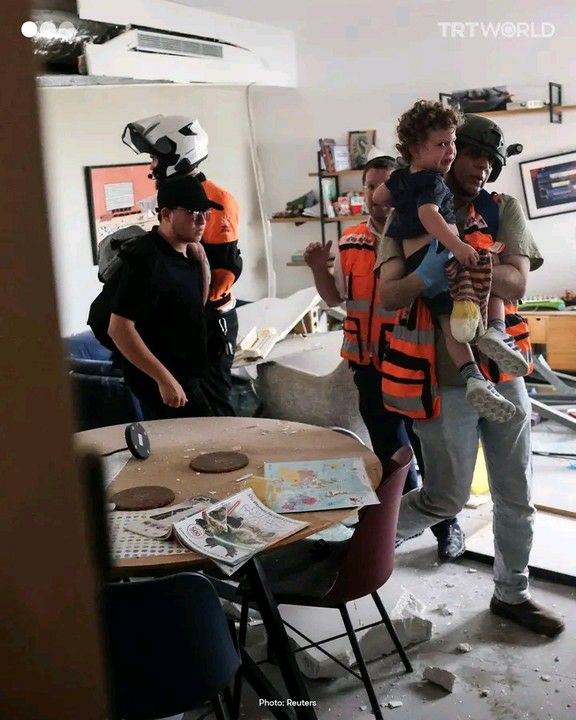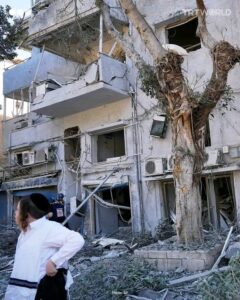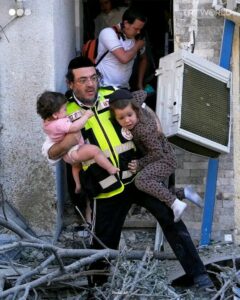
Tensions in the Middle East escalated dramatically Sunday as Iran launched a barrage of missiles at Israel, striking major cities just hours after the United States conducted coordinated airstrikes on key Iranian nuclear facilities.
Israeli authorities confirmed that approximately 25 missiles were fired in the early hours of Sunday, with Tel Aviv, Haifa, and several central and coastal regions among the targets. The Israeli Fire and Rescue Services reported “direct damage” to buildings in the Tel Aviv metropolitan area, while emergency crews worked swiftly to manage fires and rescue trapped civilians.
In Haifa, one missile reportedly landed in a residential zone, but no air raid sirens were activated, raising alarm about the effectiveness of the early warning systems. No official casualty count has yet been released, but local media reported several injuries and widespread panic.

The missile strikes came on the heels of a high-profile U.S. military operation that targeted Iran’s nuclear infrastructure, including facilities in Fordow, Natanz, and Esfahan. U.S. officials said the mission was aimed at neutralizing Iran’s nuclear capabilities, citing growing threats to regional stability.
In a televised address, Israeli Prime Minister Benjamin Netanyahu condemned the missile attack, calling it “an unacceptable act of aggression” and vowed a firm military response. “Iran has crossed a red line. We will respond with full force to defend our people and sovereignty,” he said.

Iran, meanwhile, claimed responsibility for the missile launch, describing it as “a legitimate act of self-defense” in retaliation for what it termed “American and Israeli aggression.”

International leaders have urged restraint amid fears of a broader conflict that could engulf the region. The United Nations Security Council is expected to convene an emergency session later today.
This marks one of the most direct and dangerous confrontations between Iran and Israel in years, with U.S. involvement raising the stakes on the global stage. The situation remains fluid, with the potential for further escalation in the coming hours.











